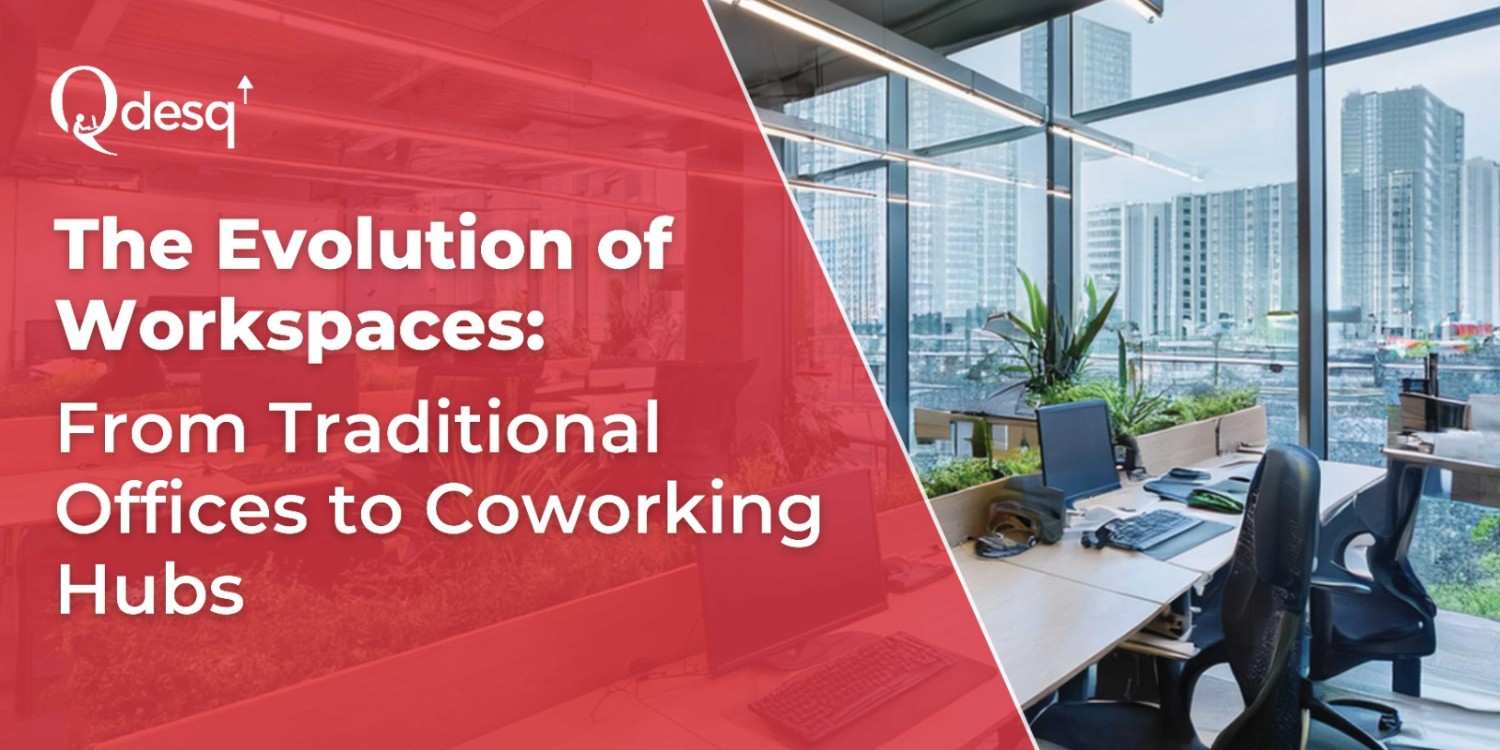The way we work has changed dramatically over the years. From the rigid, hierarchical setup of traditional offices to the collaborative and flexible environment of coworking spaces, this evolution mirrors the transformation of work itself. Today, workspaces are more than just four walls—they’re ecosystems designed to foster creativity, collaboration, and growth.
Let’s explore this fascinating journey of workspaces, why coworking hubs are leading the charge, and what this shift means for businesses and professionals in today’s world.
The Traditional Office
Traditional offices dominated the 20th century and were all about structure, order, and hierarchy. These spaces were designed to reflect the corporate culture of the time, with a clear division between management and employees.
Key Characteristics:
- Cubicle Culture: Introduced in the 1960s, cubicles became synonymous with productivity and efficiency. However, they also bred isolation and monotony.
- Fixed Working Hours: Employees were tied to 9-to-5 schedules, with little room for flexibility.
- Long-Term Commitments: Companies invested heavily in long-term leases and infrastructure, tying up significant resources.
- Formal Collaboration: Communication was formal and often limited to scheduled meetings or memos.
While traditional offices laid the groundwork for organisational efficiency, they often stifled creativity, innovation, and employee well-being.
The Shift to Flexibility
The late 20th and early 21st centuries marked the beginning of a shift. The rise of technology and changing employee expectations drove businesses to rethink their approach to workspaces.
Influential Trends:
- Open-Plan Offices: Designed to foster collaboration, open-plan layouts remove physical barriers. While encouraging interaction, they also introduced challenges like noise and lack of privacy.
- Remote Work: The internet and affordable technology made remote work feasible, offering employees greater flexibility and work-life balance.
- Hot Desking: A cost-efficient way to maximise office usage, hot desking allows employees to share workstations, reducing real estate costs.
These changes signalled a growing emphasis on flexibility, but the workspace revolution was beginning.
Coworking Hubs: Redefining the Workspace
The first official coworking space opened in 2005 in San Francisco, setting the stage for a global revolution. Today, coworking hubs are the epitome of modern work culture—dynamic, collaborative, and adaptive.
What Makes Coworking Spaces Unique?
- Flexibility: Coworking spaces offer pay-as-you-go models, allowing businesses to scale up or down effortlessly. From solo freelancers to multinational corporations, these spaces cater to diverse needs.
- Community and Collaboration: Coworking hubs foster a sense of community, unlike traditional offices. Networking events, workshops, and shared spaces encourage collaboration across industries.
- Plug-and-Play Solutions: With high-speed internet, meeting rooms, ergonomic furniture, and even wellness zones, coworking spaces are fully equipped to handle modern business demands.
- Prime Locations Without the Cost: Coworking hubs offer access to prestigious addresses in commercial hotspots without the high cost of leasing traditional office space.
- Diversity of Members: These spaces are melting pots of professionals, including startups, freelancers, SMEs, and corporate teams.
Why Businesses Are Embracing Coworking Spaces
Coworking hubs have emerged as the preferred choice for businesses of all sizes. Here’s why:
Cost-Efficiency
Traditional offices require significant investment in leases, furniture, and maintenance. In contrast, coworking spaces offer a fully serviced office experience at a fraction of the cost.
Talent Retention
A 2023 survey revealed that 74% of employees prioritise flexibility in their work environment. Coworking spaces provide an attractive work culture, helping businesses retain top talent.
Increased Productivity
The collaborative atmosphere of coworking spaces boosts creativity and innovation. Access to quiet zones, brainstorming rooms, and breakout areas cater to different work styles.
Networking Opportunities
Coworking hubs host a diverse range of professionals, providing endless opportunities for networking and partnerships. Spontaneous interactions often lead to collaborations and new business ventures.
Sustainability
With shared resources and energy-efficient designs, coworking spaces are inherently more sustainable than traditional offices. Many providers actively adopt green practices, appealing to environmentally conscious businesses.
The Emotional Impact of Coworking
Beyond functionality, coworking spaces bring an emotional dimension to work. They combat the isolation of remote work by creating a sense of belonging and community. The ability to connect with like-minded professionals, share ideas, and feel part of something bigger transforms work from a task into a fulfilling experience.
The Future of Workspaces
As hybrid work models gain traction, coworking spaces are set to dominate the workspace landscape. Here’s what to expect in the coming years:
- Tech-Integrated Workspaces: From AI-driven resource management to VR meeting rooms, coworking spaces will embrace cutting-edge technology to enhance productivity.
- Expansion to Tier-2 and Tier-3 Cities: As businesses explore opportunities beyond metros, coworking providers expand to smaller cities, democratising access to premium workspaces.
- Customised Experiences: Spaces tailored for specific industries, such as fintech hubs or creative studios, will become more prevalent.
- Sustainability at the Core: Eco-friendly designs, renewable energy use, and waste reduction will shape the next generation of coworking spaces.
Closing Thoughts
The evolution of workspaces from traditional offices to coworking hubs is a testament to how work has transformed. Today’s workspaces are designed to be agile, collaborative, and employee-centric, reflecting the needs of a dynamic workforce.
Coworking hubs have proven to be more than just a trend; they are a sustainable, efficient, and inspiring way to work. Whether you’re a startup looking to scale, a freelancer seeking community, or an enterprise exploring flexible options, coworking spaces are the key to unlocking your full potential.












